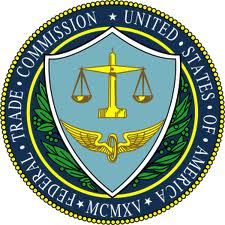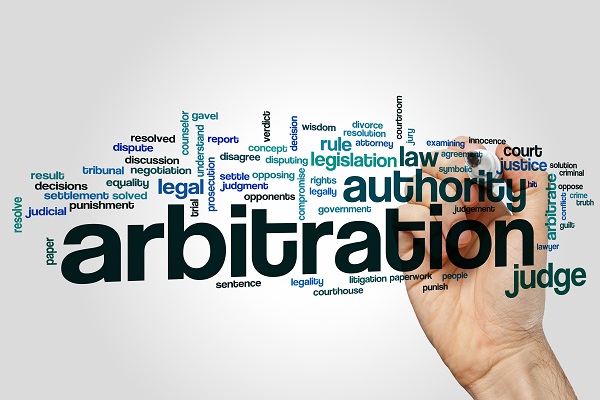The Rhode Island Department of Business Regulation has adopted a record retention rule for debt collectors requiring that virtually all records be retained for a minimum of five years “following the transaction.” Records that must be retained include the following: all audio recordings of contact with customers; records of all customers contacted; all written correspondence (including that sent electronically) between the licensee and the consumer; complete files and documentation of every debt the licensee has attempted to collect including any and all documents relating to that debt; all communications received from customers including copies of all documents received in hard…
Posts published in “Debt Collection”
The U.S. Court of Appeals for the Second Circuit recently affirmed entry of summary judgment in favor of the Federal Trade Commission and against 13 corporations and their two co-owners for violations of the Federal Trade Commission Act and the federal Fair Debt Collection Practices Act for allegedly placing unlawful and threatening collection calls to consumers seeking to collect payday loan debt. In so doing, the Second Circuit concluded that the trial court did not err in holding the offending corporations’ owners jointly and severally liable for the disgorgement assessed against all defendants, which was affirmed as an appropriate amount…
Legislation has been introduced in Illinois and New York that would require debt collectors to provide consumers with specific notices. In New York, Assembly Bill 876 would require the initial written communication to a debtor to include the following: “Debtor’s Rights As a debtor who owes or may owe a consumer claim, you are given some protection and rights by the New York and federal laws regulating debt collection procedures. You should be aware of your rights. 1. A debt collector may contact you or any member of your family or household directly. However, they may not contact you with such…
Colorado House Bill 19-1089, introduced on Jan. 14, would amend the Colorado Revised Statutes dealing with property and earnings exemptions by adding a new definition for “medical debt,” which would mean “any obligation or alleged obligation of a person to pay money arising out of the provision of health care services as defined in section 10-16-102(33).” Under the legislation, “the earnings of an individual whose family income does not exceed four hundred percent of the current federal poverty guidelines, adjusted for family size, are not subject to garnishment or levy under execution of attachment if the writ is the result of…
In a case of first impression, the U.S. Court of Appeals for the Ninth Circuit recently held that a debtor who successfully challenges — as opposed to a debtor who defends — an award of attorney’s fees and costs for violations of the automatic stay under § 362(k) of the Bankruptcy Code is entitled to an award of appellate fees and costs. In so ruling, the Court reversed the trial court’s order denying the debtor’s motion for appellate attorney’s fees and costs, and remanded the matter to the trial court with instructions to remand to the bankruptcy court to calculate…
The U.S. Court of Appeals for the Eleventh Circuit recently affirmed the dismissal of a consumer’s complaint alleging that a collection letter violated the federal Fair Debt Collection Practices Act, 15 U.S.C. 1692, et seq., by failing to meaningfully convey the name of his creditor, as required. In so ruling, the Eleventh Circuit concluded that dismissal was appropriate because the consumer did not claim that the collector misidentified his creditor, and the ‘least sophisticated consumer’ who had been a patient at a hospital would surely understand the hospital to be the creditor when its name was listed next to the…
On Dec. 28, 2018, New York Senate Bill 3491 was signed into law and will become effective March 29, 2019. The legislation, in its final form, simply prohibits “principal creditors” and debt collection agencies from: (a) making any representation that a person is required to pay the debt of a family member in a way that contravenes the FDCPA; and (b) making any misrepresentation about the family member’s obligation to pay such debts. A “principal creditor” is defined under current law as “any person, firm, corporation or organization to whom a consumer claim is owed, due or asserted to be…
In an unpublished ruling, the U.S. Court of Appeals for the Second Circuit held that when a debt collector did not seek to collect fees and interest after default, its letter to a borrower that did not state whether fees and interest continued to accrue after default did not engage in deceptive or misleading conduct in violation of the FDCPA. A copy of the opinion in Derosa v. CAC Financial Corp. is available at: Link to Opinion. After a borrower defaulted on her credit card account, the original creditor assigned the account to a debt collector. The debt collector sent a letter…
A debt collector sent a letter to a consumer stating: “We can’t change the past, but we can help with your future.” The letter contained three payment options that were described as “discounts,” though one was merely a payment plan for the full balance. The letter advised “[i]f you pay your full balance, we will report your account as Paid in Full. If you pay less than your full balance, we will report your account as Paid in Full for less than the full balance.” The consumer filed a complaint in the U.S. District Court for the Eastern District of…
The U.S. Court of Appeals for the Seventh Circuit held that a defendant waived its right to arbitrate due to its “gratuitous delay” in seeking arbitration, where it waited 13 months after the filing of the lawsuit before moving to compel arbitration, and that any showing of prejudice to the non-moving party was not required. Accordingly, the Seventh Circuit affirmed the trial court’s ruling denying a motion to compel arbitration. A copy of the opinion in Smith v. GC Services Limited Partnership is available at: Link to Opinion. The plaintiff applied for and received a credit card from a bank. The credit…
The U.S. Court of Appeals for the Seventh Circuit held that a plaintiff’s oral testimony that a $100 payment was demanded of her in violation of the federal Fair Debt Collection Practices Act (FDCPA) was insufficient to withstand summary judgment where the debt collector defendant produced documentary evidence to support its testimony that no such demand was made. Accordingly, the Seventh Circuit affirmed the ruling of the trial court granting summary judgment in favor of the defendant. A copy of the opinion in Duncan v. Asset Recovery Specialists, Inc. is available at: Link to Opinion. After the plaintiff fell behind on her…
The Supreme Court of Missouri recently affirmed the denial of a lender’s motion to compel arbitration of a consumer’s putative class claims because the arbitration provision at issue designated the use of a specific arbitrator which was no longer available to handle creditor claims. A copy of the opinion in A-1 Premium Acceptance, Inc. v. Hunter is available at: Link to Opinion. Following the borrower’s default under a small personal loan, the lender brought an action in Missouri state court for collection of the debt. The borrower filed counterclaims against the lender for alleged violations of the Missouri consumer protection statute and requested…












